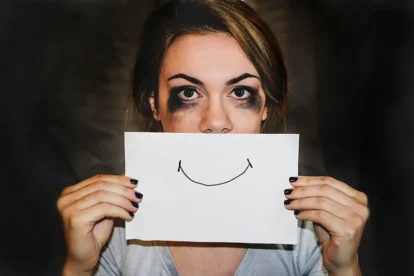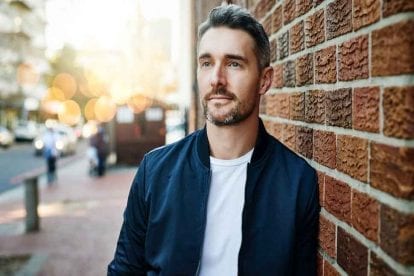6 Things You Need to Know About Treatment for Prescription Drug Abuse

When you seek treatment for prescription drug abuse, the focus is not on shame or blame but on your well-being and your best future. Your optimal recovery path is with professional support, especially as it takes into account family dynamics and other diverse factors in your life. You can depend on safe medical detox, a commitment to your privacy, and the most value placed on your health and well-being.
Problems related to prescription medications can develop inconspicuously but are no less dangerous than other substance use disorders. Even when used as intended by doctors—and very often when used incorrectly—many prescription drugs bring a risk of dependence and addiction.
The need for prescription drug rehab may be rising, but that doesn’t mean that the number of people actually getting treatment is rising in equal measure. The common barriers to treatment include:
-
Work conflicts
-
Family conflicts
-
Financial concerns
-
Denial about the problem or its severity
-
Lack of education and understanding
- Shame and stigma surrounding addiction and mental health
-
The availability and locations of treatment centers
But the implications of these challenges are eclipsed by the undeniable value of treatment for prescription drug abuse. And the sooner someone gets help for their addiction, the sooner they can regain their control in life and the better are their long-term recovery outcomes overall.
1 – Treatment for Prescription Drug Abuse Is Not About Shame or Blame
Shame can apply pressure on both sides of your addiction experience. Feelings of shame can provoke you to self-medicate with potentially addictive substances. That impulse leads to substance abuse, which can very easily lead to addiction. Once you are caught up in addiction and have lost a lot of control over your life, the resulting destruction—to yourself and the people and things around you—can also bring feelings of shame. And the cycle continues and expands because that additional shame is likely to inspire more of the same destructive coping pattern.
However, treatment for prescription drug abuse takes into account that this shameful pressure is misguided and inappropriate. Addiction and other mental health disorders call for compassion and understanding for the original pressures and problems that underlie your inclination to self-medicate. And empowerment—the opposite of shame—is a vitally important ingredient for true long-term recovery.
2 – Your Recovery Outcomes Are Best with Professional Treatment
For reasons of privacy, misinformation, and other factors, a lot of people try to manage their problems with prescription drugs on their own. However, there are real dangers possible with withdrawal symptoms, and the risks of relapse are high. Not to mention, quitting the drug is rarely enough for long-lasting recovery. It’s important to have professional assistance in navigating any underlying mental and emotional upset. Otherwise, there’s a chance that you might reach for substances again in the future for lack of a better coping mechanism.
Prescription drug abuse treatment programs work by taking into account the whole person, their personal history, their triggers and stressors, their relationships, and their overall daily environment. All of these factors influence your relationship with prescription drugs, and comprehensive treatment can address a diverse range of issues. By pulling together various treatment options for your holistic well-being, professional addiction rehab doesn’t just stabilize you in the present—it also sets you up for success in the future.
Hope is Just a Phone Call Away
866-922-13503 – Addiction and Recovery Both Involve the Whole Family
It’s hardly possible for your substance abuse and addiction to occur in isolation. On one level or another, your loved ones are involved and struggling as well. In fact, addiction is a family disease, and for your sake and for theirs, it is beneficial for loved ones to participate in the recovery journey.
Treatment specialists are in touch with how family dynamics can serve as triggers for substance abuse, as well as how family dynamics can play an integral and supportive role in recovery. Hence, in the flow of addiction treatment, family therapy can address the interpersonal patterns that are counterproductive in order to redirect them. This kind of cooperative therapy can also identify the opportunities for more empowered dynamics that account for health and happiness all around.
4 – Medical Detox Is Critically Important for a Safe Start to Your Recovery Journey
When you’re coming down from prescription drugs, after your body has been accustomed to regular use, the withdrawal symptoms are unpredictable and potentially very dangerous. Those symptoms could, ultimately, make it very difficult to abstain from the drug without attentive and knowledgeable support. But they could also put your physical and psychological health at great risk.
Through supervised medical detox, experienced clinicians can attend to your safety and your physical and emotional comfort all at once. Because you’re not on your own, you have a much better chance of getting through the initial withdrawal struggles and coming out the other side with your personal power intact. Plus, you’re in the best place to mobilize your coping strategies and support for a future free of addiction and distress.
5 – Prescription Drug Rehab Can Protect Your Privacy and Confidentiality
Your concerns about privacy may become a barrier to your recovery, but it is possible to put your treatment first without compromising your privacy. You can consider factors such as the program size, the population, and the explicit policies that affect privacy and confidentiality. And treatment centers can give you details about their procedures for ensuring that your concerns are addressed.
Both federal laws and program-specific policies protect clients’ personal information and presence in treatment. You can also inquire about private accommodations to understand how that might support your success in recovery.
6 – The Cost Is Much Greater If You Don't Get Treatment
As you’re facing the possibility of addiction treatment, the cost can feel like a significant pressure. If you can put the bigger picture of your health and well-being in perspective, you can also recognize the significant costs of not pursuing treatment.
If the prescription drug abuse persists, it may impact your work performance and income there. You may eventually face unexpected costs due to health problems, legal problems, more serious addiction treatment down the road, and personal problems that can’t be quantified in dollars. Prioritizing your well-being now with professional treatment is the best route to reclaiming your personal power and your best life.
Alta Mira offers comprehensive treatment for people struggling with drug and alcohol addiction as well as co-occurring mental health disorders and process addictions. Contact us to learn more about our renowned Bay Area programs and how we can help you or your loved one start the journey toward lasting recovery.






